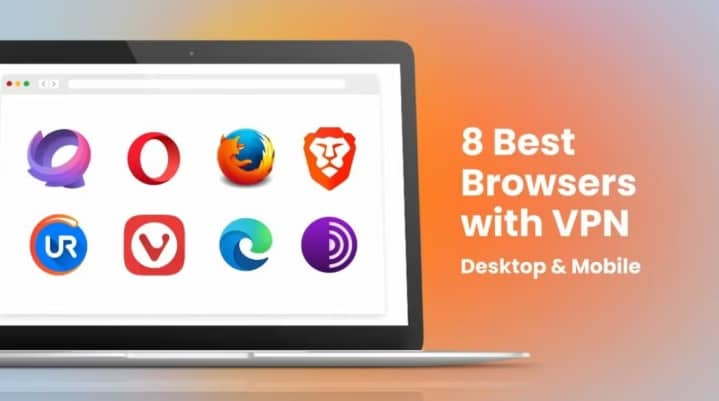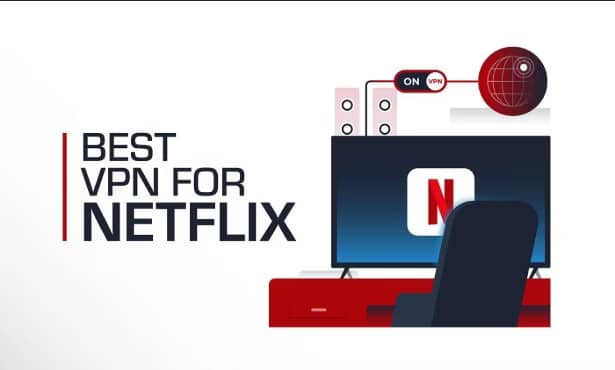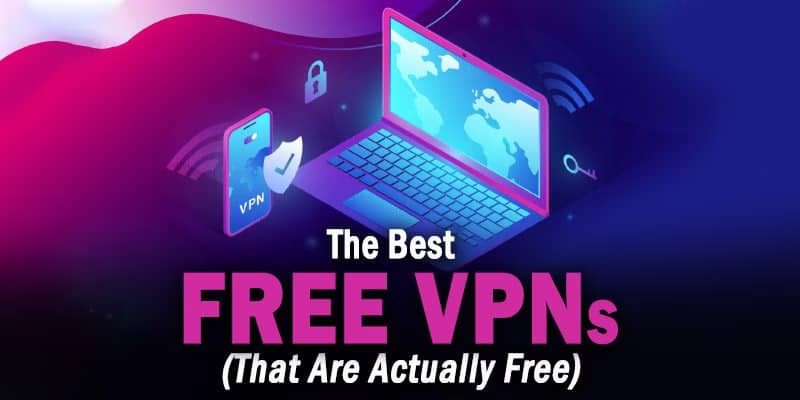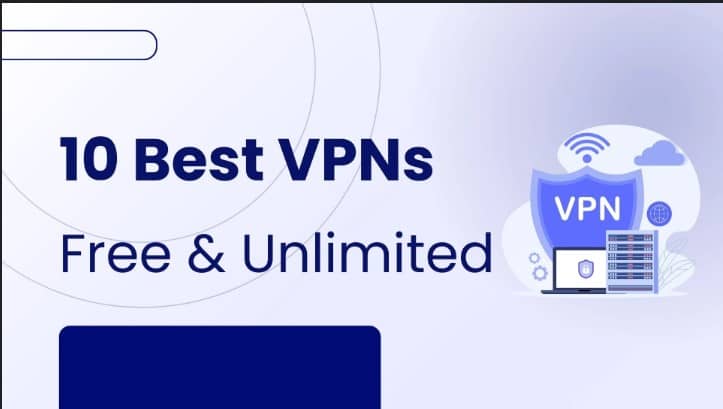8 Best VPNs for Browsers
Introduction
In today’s digital world, online privacy and unrestricted access to content have become more important than ever. Whether you’re streaming content, browsing social media, or conducting research, your internet activity can be tracked, monitored, or even blocked based on your location. This is where a VPN (Virtual Private Network) becomes essential—especially one designed specifically for browser use. Browser-based vpns offer fast, secure, and convenient protection without the need to install full software on your device.
They help encrypt your connection, hide your IP address, and allow you to bypass geo-restrictions effortlessly. But with so many VPN options available, choosing the right one for your browser can be overwhelming. That’s why we’ve curated a list of the 8 best VPNs for browsers to help you browse the web more securely and freely. Whether you use Chrome, Firefox, Edge, or another browser, there’s a VPN that fits your needs.
What Is a Browser VPN?
A browser VPN is a lightweight tool, usually in the form of an extension or add-on, that encrypts your internet traffic within the browser itself. Unlike full VPN applications that secure your entire device’s internet connection, vpns for browsers focus solely on the activity happening inside the browser. They offer quick installation, ease of use, and are perfect for tasks like accessing geo-blocked websites or maintaining anonymity online. These tools are especially useful for users who want privacy while browsing but don’t need full-device protection.
Benefits of Using a VPN for Browsing
Using a VPN in your browser provides several key benefits. First, it protects your browsing activity from hackers, trackers, and surveillance, especially on public Wi-Fi networks. Second, it allows you to bypass geographical restrictions on websites and streaming services. Third, it helps maintain your anonymity by hiding your real IP address and replacing it with one from a different region. Many vpns for browsers also block ads and malicious websites, improving your overall web experience. It’s a smart, efficient way to stay safe and private online.
How to Choose the Best VPN for Your Browser
When selecting a VPN for browser use, consider a few critical factors. First, ensure it offers a reliable browser extension that works with your preferred browser (like Chrome or Firefox). Look for strong encryption, a strict no-logs policy, and fast connection speeds. Extra features like ad blocking, tracker protection, and kill switches are valuable too. Pricing and customer support also matter—some vpns for browsers offer better value for money with multiple device support. Always opt for a VPN with a proven reputation for performance and privacy.
ExpressVPN – Best Overall VPN for Browsers
ExpressVPN stands out for its speed, reliability, and ease of use. Its browser extensions for Chrome and Firefox work seamlessly, offering strong encryption and access to servers in 90+ countries. The extension is backed by the full power of the desktop app, giving users full protection even within the browser. Features like WebRTC leak protection and HTTPS Everywhere are built in. While it’s one of the pricier options, its performance and strong privacy policies make it worth the investment for serious users.
NordVPN – Top Choice for Security
NordVPN is a leading name in online security, and its browser extensions reflect that strength. Available for Chrome, Firefox, and Edge, the lightweight plugin encrypts your traffic and prevents IP leaks. It includes features like Threat Protection Lite, which blocks ads and malware. NordVPN’s strict no-logs policy, double VPN encryption, and thousands of fast servers worldwide make it a great choice for users who prioritize security. It’s especially well-suited for those who want to browse safely on public Wi-Fi or in restrictive regions.
Surfshark – Best Budget-Friendly Option
Surfshark offers a perfect balance between price and performance, making it ideal for budget-conscious users. Its browser extensions are available for Chrome and Firefox, providing essential privacy tools like ad blocking, cookie pop-up management, and malware protection. Surfshark allows unlimited simultaneous connections, so you can protect all your devices at once. With over 3,200 servers in 100+ countries, it’s great for accessing global content. Despite its affordability, Surfshark doesn’t compromise on security, using AES-256 encryption and following a strict no-logs policy.
CyberGhost – Great for Beginners
CyberGhost is known for its user-friendly design and straightforward setup, making it a great choice for VPN beginners. Its browser extensions are free and easy to install, offering quick access to servers in several countries. While the browser VPN offers basic protection, the full app includes features like streaming-optimized servers, malware blocking, and a kill switch. CyberGhost has a large server network and strong privacy policies, so users can enjoy a safe browsing experience without needing technical knowledge.
ProtonVPN – Strong Privacy Focus
ProtonVPN is a solid option for privacy-conscious users, developed by the team behind ProtonMail. Although it doesn’t offer a browser extension, its full app works seamlessly alongside any browser, ensuring encrypted and private access. ProtonVPN stands out for its strong stance on digital rights, open-source apps, and secure core architecture. It offers a free plan with no data limits, and its premium version includes access to high-speed servers in 60+ countries. With a strict no-logs policy and Swiss jurisdiction, it’s ideal for serious privacy advocates.
Windscribe – Best Free Browser VPN
Windscribe is a popular choice for users looking for a reliable free VPN option. Its browser extensions for Chrome, Firefox, and Opera come packed with features like ad blocking, tracker blocking, and split tunneling. Free users get 10GB of monthly data, with access to servers in multiple countries. The interface is clean and easy to use, making it accessible for beginners. Windscribe also has a strong privacy policy and supports advanced features like time zone spoofing and WebRTC blocking for extra anonymity.
Private Internet Access (PIA) – Highly Customizable
Private Internet Access is known for its advanced settings and customization options. Its browser extensions for Chrome, Firefox, and Opera offer robust privacy features, including blocking trackers, cookies, and location access. PIA operates thousands of servers in over 90 countries, ensuring fast and reliable connections. It’s ideal for tech-savvy users who want more control over their VPN experience. With open-source software, a proven no-logs policy, and strong encryption, PIA provides a flexible and secure solution for private browsing.
TunnelBear – Simple and Fun to Use
TunnelBear combines strong privacy with a fun and friendly user interface, making it a favorite for casual users. Its browser extensions are available for Chrome and Firefox, offering one-click protection and access to global servers. While the free version includes 500MB of data per month, it’s great for light browsing and occasional use. TunnelBear uses strong encryption and has undergone independent security audits, which is rare for a free VPN. It’s ideal for users who want privacy without complicated settings or jargon.
Compatibility with Popular Browsers
When choosing a VPN, it’s important to ensure it supports your preferred browser. Most top vpns for browsers offer extensions for Chrome and Firefox, while some also support Microsoft Edge and Opera. These extensions are designed to integrate smoothly, offering features like one-click activation, ad blocking, and location spoofing. Some vpns for browsers, like ExpressVPN and NordVPN, work alongside their full desktop apps for enhanced protection. Always check compatibility before installing, especially if you’re using less common browsers or want a consistent experience across multiple devices.
Are Free VPNs Safe for Browsers?
Free vpns for browsers can be convenient, but they often come with limitations and risks. Many offer limited server access, slower speeds, and data caps. More importantly, some free providers may log your activity or display ads to generate revenue. However, reputable options like Windscribe and ProtonVPN offer secure, privacy-focused free plans with clear policies. If you choose a free VPN, ensure it comes from a trustworthy source and has strong user reviews. For frequent or serious use, a paid VPN is usually a safer choice.
Conclusion
VPNs for browsers are essential tools for anyone looking to enhance their online privacy, security, and freedom. Whether you’re accessing restricted content, using public Wi-Fi, or just browsing privately, the right VPN can make all the difference. From powerful options like ExpressVPN and NordVPN to user-friendly choices like TunnelBear and Windscribe, there’s a solution for every need and budget. Consider your priorities—speed, security, price, or ease of use—when making your decision. With the right browser VPN, you can surf the web safely and without limits.
You Can Also Read: 8 Best VPNs for Router
FAQS
What is the #1 best VPN?
- Private Internet Access.
- Hotspot Shield.
- Norton Secure VPN.
Can I use a VPN in a browser?
Yes, a VPN browser extension can be safe to use as long as the service is reliable.
Which VPN is best for Chrome?
For Chrome, NordVPN is often recommended for its strong encryption and premium features. Surfshark is another popular choice, especially for torrenting and its split-tunneling feature. If you’re looking for a free option, ZenMate and uVPN are frequently mentioned for their ease of use and free Chrome extensions.
What is the no. 1 fastest VPN in the world?
- NordVPN – Fastest VPN for Security.
- Surfshark – Fastest VPN for Streaming.
- Proton VPN – Free VPN With Very Fast Speeds.
- IPVanish – Fastest for Smartphones.
- Private Internet Access – Fast VPN for Torrenting.
Which VPN is 100% safe?
ExpressVPN is one of the safest VPN providers because of its strong encryption, malware protection, and secure tunneling protocols. Looking deeper, it appears that ExpressVPN has all the standard features. Your data is protected with AES-256-GCM data encryption, the same protocol that’s used by IPVanish and Surfshark.






